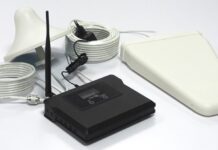Telekom Malaysia (TM) has agreed to acquire a 57% stake in Malaysia’s largest WiMAX provider, Packet One Networks (P1).
The acquisition of a controlling stake in P1 represents a modest re-entry into the mobile sector.
TM will collaborate with P1’s other shareholders, Green Packet (a 4G device maker) and SK Telecom, South Korea’s largest mobile operator, on the deployment of LTE in Malaysia.
In 2008, TM spun off its domestic and international mobile operations into Axiata. The acquisition of a controlling stake in P1 represents a modest re-entry into the mobile sector. P1 is a far smaller player than its mobile competitors: at the end of 2013 it had 0.5 million mobile data and voice subscriptions, compared to Celcom’s 13.1 million, Maxis’ 12.9 million, DiGi’s 11 million and U Mobile’s 5 million. As such, the acquisition will likely gain approval from Malaysia’s regulatory authorities.
The deal is a good one for P1, which will exploit the financial and technical resources of its partners to upgrade its 2.3GHz network from WiMAX to LTE and deploy a greenfield 2.6GHz LTE network using its 2x10MHz of spectrum won in December 2012.
Following the deal, TM will be able to offer a full suite of services (fixed voice, broadband, pay TV and now mobile) to its household and business customers. But the cost of funding P1 will be considerable – at least $470 million over the next 3 years.
The success of the project faces other challenges. P1 is playing catch up with the country’s four mobile operators, all of which launched commercial 4G LTE in 2013. In addition, TM lacks a large legacy 3G customer base to migrate to 4G. Upselling its fixed broadband customers to mobile LTE will be a much trickier proposition. TM will also face competition from other LTE new entrants:
REDtone and Altel will get a leg up through partnerships with Maxis and Celcom respectively.




















